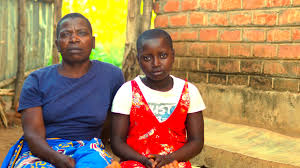
Maria Chale, a 36-year-old Malawian woman, lost her hearing at the age of 10 due to cerebral malaria. Despite facing challenges such as bullying and difficulty grasping lessons, she persevered and earned a master’s degree in Inclusive and Special Education from the University of Edinburgh. Her story highlights the struggles deaf children face in Malawi’s inclusive education system.
Malawi shifted to an inclusive education system in the 1990s, but a 2021 study found that many deaf children struggle in mainstream classrooms due to isolation, loneliness, and teachers’ lack of understanding of their unique needs. Maria relied on lip-reading, copying notes from classmates, and the support of lecturers to succeed in her studies, but the lack of sign language support and difficulty lip-reading throughout entire lessons posed significant challenges.
Despite some improvements, such as the introduction of specialist teachers and government support for those with visual disabilities, many issues persist. Specialist teachers often lack the necessary skills to teach effectively in sign language, and there is little support for students transitioning to secondary school.
Malawi has taken steps to promote inclusive education, such as holding a Spelling Bee competition for deaf children and introducing relevant programs at colleges and universities. However, challenges remain, including a shortage of specialty teachers, a knowledge gap among educators regarding inclusion, and infrastructural issues.
Jenipher Mbukwa Ngwira, head of special needs education at the Catholic University of Malawi, emphasizes the need for policy implementation, teacher training, and a focus on children with cognitive challenges to create a truly inclusive learning environment for all.
